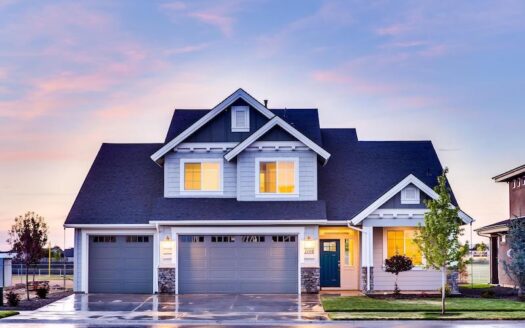Things to Consider While Buying Freehold Property in Dubai
Dubai’s real estate market has become increasingly appealing to local and international investors due to the city’s attractive rental yields, tax-free status, and modern infrastructure. However, investing in freehold property involves some important considerations. Below, we explore key factors to keep in mind when purchasing freehold property in Dubai, along with an overview of the top 27 freehold areas to invest in.
1. Legal Requirements and Regulations
- Ensure you understand Dubai’s property laws, including the buyer’s eligibility and rights for foreign investors. Non-residents can buy freehold properties in designated areas.
2. Property Location
- Location is crucial for long-term value and rental potential. Different areas cater to different lifestyles and investment goals, such as high-end living, affordability, or proximity to business hubs.
3. Developer Reputation
- Research the developer’s history to ensure quality and reliability. Established developers are more likely to deliver projects on time and offer higher-quality construction.
4. Type of Property
- Decide between apartments, villas, townhouses, or commercial spaces based on your investment strategy and personal preferences.
5. Property Usage: Investment vs. Personal Use
- Clarify your primary intention for buying the property. For investment, rental yields and capital appreciation matter, whereas for personal use, lifestyle factors may take precedence.
6. Maintenance Fees and Service Charges
- Be aware of the maintenance fees associated with the property, which can vary significantly based on the location and amenities.
7. Off-Plan vs. Ready Properties
- Off-plan properties may offer payment plans and lower initial costs, but involve construction risk. Ready properties provide immediate rental income and established communities.
8. Financing Options
- Explore mortgage options and financing plans available for expatriates and residents. Check the interest rates, eligibility requirements, and loan-to-value ratios.
9. Rental Yields and ROI
- Look at the rental yield and projected return on investment (ROI) for the specific area. Dubai’s freehold areas vary in their rental yield potential.
10. Property Management
- If you plan to rent out the property, consider hiring a property management company to handle tenant relations, maintenance, and legal matters.
11. Market Trends and Property Appreciation
- Monitor current market trends and future developments that may influence property values, such as new infrastructure projects, public transport expansions, or upcoming tourist attractions.
12. Resale Value
- Consider the long-term resale value of the property. Properties in premium locations or those with unique features tend to appreciate more.
13. Community and Amenities
- Evaluate the amenities available within the community, such as schools, parks, shopping centers, healthcare, and recreational facilities.
14. Building Age and Quality
- The age of the property can affect maintenance costs and resale value. Newer buildings typically require less maintenance and come with modern amenities.
15. Ownership Structure and Property Title
- Verify that the property has a clear title and legal ownership. For off-plan properties, ensure the developer is registered with the Dubai Land Department.
16. Visa Eligibility
- Some property purchases in Dubai make you eligible for a residency visa. Consider this if residency is part of your plan.
17. Tax Implications
- While Dubai offers tax-free rental income, investors from other countries should consider any applicable taxes in their home country.
18. Payment Plan and Flexibility
- Evaluate the payment plan offered by developers, especially for off-plan properties. Flexible payment options can ease the financial burden.
19. Future Developments in the Area
- Look into future projects or developments in the neighborhood that could affect property values positively or negatively.
20. Security and Safety
- Choose a community that is well-secured, with measures in place to ensure safety for residents.
21. Environmental Factors
- Consider factors like noise pollution, air quality, and proximity to green spaces or water bodies.
22. Proximity to Transportation Hubs
- Access to public transport and major roads can increase the property’s appeal for tenants or future buyers.
23. Schooling and Education Facilities Nearby
- For families, proximity to reputable schools and educational institutions is essential.
24. Cultural and Social Fit
- Ensure the community aligns with your cultural and social lifestyle preferences.
25. Utility Services Availability
- Make sure utilities like water, electricity, and internet are readily available and reliable.
26. Legal and Transfer Fees
- Be aware of the costs associated with transferring the property title and any legal fees involved.
27. Homeowner Association Rules
- Review the community’s homeowners’ association (HOA) rules, which may impact renovations or renting out the property.
What are the Top 27 Freehold Areas in Dubai for Investors:
- Business Bay
- Dubailand
- Downtown Dubai
- Barsha Heights
- Dubai International Financial Centre
- Dubai Marina
- Jumeirah Beach Residence
- Jumeirah Lake Towers
- Jumeirah Village Circle
- Palm Jumeirah
- Al Barari
- Dubai Sports City
- Dubai Production City
- Dubai Motor City
- Dubai Studio City
- Dubai Festival City
- International City
- Discovery Gardens
- Culture Village
- Meydan City
- Dubai Investment Park
- Dubai Silicon Oasis
- Dubai South
- Arjan
- Bluewaters Island
- Mohammed Bin Rashid City
- Mudon
Investing in Dubai’s freehold property market requires thorough research and understanding of the legal, financial, and lifestyle aspects. With the right approach, you can find a property that aligns with your investment goals while enjoying the benefits of a tax-free environment and potentially high returns.
For a proper consultation send us an email or contact us @ [email protected]
Enjoy!




